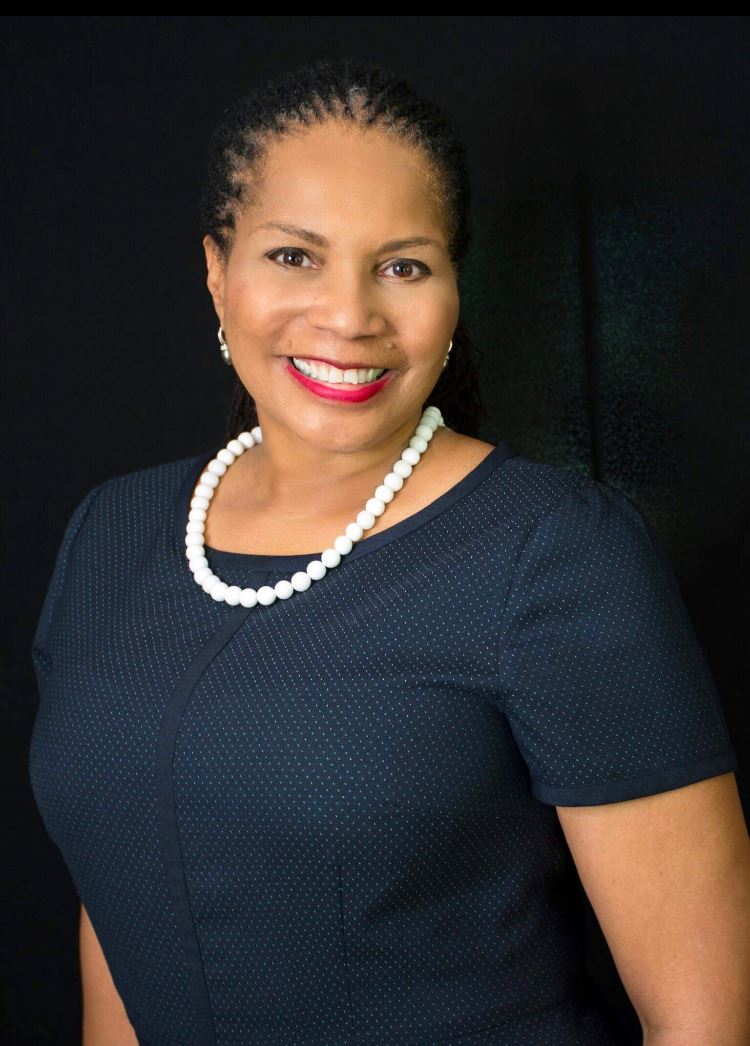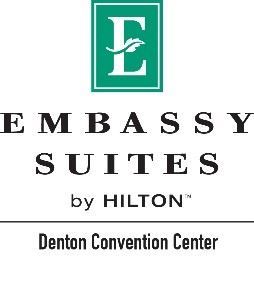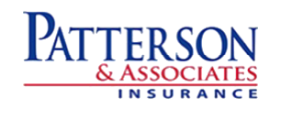Presenting the 2024 North Texas SHRM
Conference Speakers
Click on Speaker Photos to view their Conference Message
Keynote Speaker - Julie Burch: Conflict is WAR! Conflict and Confrontation Skills for Professionals Conflict is everywhere and unavoidable no matter how hard we try. And confrontation is a necessary byproduct. Especially in HR! Everyone comes to you when conflict presents itself-- and they look to you to solve it all! So, what you do with it is the key. If you have ever avoided saying what needed to be said because you hate conflict-- or regretted saying something in the heat of the moment, then this is the session for you. In this dynamic, high energy, and highly interactive keynote you will learn the best of the best conflict management skills. In this session you will learn what conflict is-- and what it means to confront someone. Julie will show you how to effectively manage conflict and confrontation in the real world, and with Julie, you will concentrate on “here’s how to do it” techniques--You will leave being able to handle any confrontational situation... with GREAT results! Some of what the participants will learn: You’ll learn what conflict is and why we avoid it. You will learn the difference between conflict and confrontation. You’ll know when, how, and who to confront…with great SUCCESS! With Julie, you will concentrate on “here’s how to do it” techniques. You’ll leave knowing how to use these techniques in specific situations, with all types of people. |
Keynote Speaker - Dee Maddox: Putting the "H.U.M.A.N." Back into Human Resources: Prioritizing People Over Processes In our rapidly evolving world, it is critical to re-emphasize the importance of individuals within our organizations. While systems and procedures are essential, they alone cannot propel a successful organization. Instead, the people serve as the backbone of any thriving business. Therefore, there is a pressing need to prioritize people over processes, creating an exceptional employee experience. The pillars of Hearing, Understanding, Motivating, Adapting, and Nurturing form the foundation of a human-centric approach to human resources. Let's delve into each of these components to explore how they can transform the workplace for the better. Hear: Actively listening to our employees is the first step towards fostering a culture of empathy and understanding. Understand: Empathy is central to effective HR. Understanding the unique perspectives, challenges, and aspirations of each individual we serve is crucial. Motivate: Acknowledging that individuals are motivated by various factors, such as recognition, autonomy, or a sense of purpose, is critical to elevating employee morale. Adapt: Change is inevitable, and we must embrace it. By staying ahead of the curve, we can ensure that our policies and practices remain relevant and effective in a constantly evolving landscape. Nurture: The talent within our organizations is akin to a garden, and we must tend to it. Providing the support and guidance needed for our employees to flourish can foster a culture of learning and development where every individual feels valued and supported on their journey toward success. By restoring the "H.U.M.A.N." in Human Resources, we can create more productive, profitable, compassionate, and fulfilling workplaces. Prioritizing people over processes can help us build a brighter future for all. |
Mallory Herrin: Leveraging the Employee Experience to Retain Top Talent Learning Objectives:
Session Summary: It’s hard to find and acquire talent, and it’s expensive to lose it. Employee retention has become a critical people strategy for employers everywhere. But how can you retain your top talent while managing the different wants and needs of your workforce? In this session, participants will learn the importance of developing an effective retention strategy that compliments talent acquisition strategies, key initiatives to implement in each phase of the employee life cycle, how to balance the needs and wants of different generations in the workforce, and how to leverage the employee experience for talent retention. |
Will Baggett: Multi-Generational Leadership - A Contact Sport In this powerful keynote speech, we delve into the heart of leadership, exploring the idea that effective multigenerational leadership is not a passive endeavor but a dynamic and engaging contact sport. Drawing inspiration from the world of sports where resilience, strategy, and teamwork are paramount, this speech offers valuable insights on how leaders can navigate the challenges of the corporate arena. I will share compelling anecdotes and lessons from the realms of business, sports, and life, emphasizing the importance of direct engagement, adaptability, and effective communication. Attendees will learn how to develop a winning mindset, build strong and cohesive teams, and lead with impact in an ever-evolving landscape. Whether you're a seasoned executive, an emerging leader, or someone aspiring to take charge, this keynote promises to equip you with practical tools and a renewed perspective on leadership. Prepare to be inspired, motivated, and empowered to embrace leadership as the contact sport it truly is. Attendees will be engaged utilizing the following exercises:
|
Raymond Swarts: BEATING BURNOUT - SPOT THE FIRE BEFORE IT STARTS HELP!!! Workplace burnout affects 76% of employees to some extent according to a Gallup study. Chances are you have experienced it yourself and if not, almost certainly someone you work with has or is experiencing burnout. This session will be an engaging workshop style presentation discussing one of the biggest, and unfortunate, trends in the workplace today – BURNOUT! We will explore ways to spot the symptoms and signs, and some methods to get it under control and PUT OUT THE FIRE! Beat Burnout with new tools and tactics to deal with stress and new insight on how to transform emotions!
|
Dr. Stevie Dawn Carter: The Communication Compass This insightful session introduces participants to a unique framework designed to navigate and decode diverse sentence structures and word patterns for enhanced communication. By understanding the intricacies of this communication compass, attendees will gain the tools to express ideas more clearly and connect with others on a deeper level. The presentation unveils a systematic approach to define and refine sentence structures, providing a practical guide to tailor communication to various contexts and audiences. Through interactive exercises and real-world examples, participants will embark on a journey to hone their communication skills, ensuring their messages resonate powerfully and fostering stronger connections in both personal and professional spheres. Join us to unlock the secrets of effective communication and elevate your ability to articulate thoughts with precision and impact. |
Dr. Jason Lambert: Who are the ‘firsts’? Effective Empowerment and Advocacy for Token Employees Statistically, twenty percent of occupations in the U.S. comprise less than a third of women employees (BLS, 2022), and women are extremely less likely to serve on executive teams in organizations (Dezso & Ross, 2012) despite counting for almost half of the workforce (BLS, 2022). Black, Asian, and Hispanic or Latino employees only comprise 12.6%, 6.7%, and 18.5% of the U.S. workforce, respectively (BLS, 2022). Compared to the 77% percent of the workforce comprising White employees (BLS, 2022), women and minoritized employees are more likely to be a token at work. As such, being a token employee comes with emotional and psychological costs (Kanter, 1977) when a sense of belonging and inclusion is absent from the organizational culture. Further, for employers who sincerely strive to create an inclusive culture, setbacks will occur if their token employees and potential token employees (e.g., applicants) are not equipped to handle the pressure of being the only one who looks like them in their organization. This presentation will share current findings from the Beyond Tokenism Research Lab at Texas Woman’s University, which investigates the experiences of token employees. Dr. Jason Lambert and Dr. Gabrielle Smith will define who token employees are according to business psychology research, discuss the difference between “tokenism” and being a token employee, explain what “token responses” are and their effects, and highlight some promising practices discovered from their research for both individuals and leaders to utilize when mitigating token responses and promoting inclusion in their organizations. Presenting along with Dr. Gabrielle Smith |
Dr. Garbrielle Smith: Who are the ‘firsts’? Effective Empowerment and Advocacy for Token Employees Statistically, twenty percent of occupations in the U.S. comprise less than a third of women employees (BLS, 2022), and women are extremely less likely to serve on executive teams in organizations (Dezso & Ross, 2012) despite counting for almost half of the workforce (BLS, 2022). Black, Asian, and Hispanic or Latino employees only comprise 12.6%, 6.7%, and 18.5% of the U.S. workforce, respectively (BLS, 2022). Compared to the 77% percent of the workforce comprising White employees (BLS, 2022), women and minoritized employees are more likely to be a token at work. As such, being a token employee comes with emotional and psychological costs (Kanter, 1977) when a sense of belonging and inclusion is absent from the organizational culture. Further, for employers who sincerely strive to create an inclusive culture, setbacks will occur if their token employees and potential token employees (e.g., applicants) are not equipped to handle the pressure of being the only one who looks like them in their organization. This presentation will share current findings from the Beyond Tokenism Research Lab at Texas Woman’s University, which investigates the experiences of token employees. Dr. Jason Lambert and Dr. Gabrielle Smith will define who token employees are according to business psychology research, discuss the difference between “tokenism” and being a token employee, explain what “token responses” are and their effects, and highlight some promising practices discovered from their research for both individuals and leaders to utilize when mitigating token responses and promoting inclusion in their organizations. Presenting along with Dr. Jason Lambert |
Randal Weidenaar: Personality Science: The Key to Understanding People Abstract: When team members value each other, they more effectively relate to one another, avoid potential conflicts, boost group cohesion and create positive dialogue. The strengths and dynamics of your team directly affect business outcomes. Drawing on personality science research, this seminar dives into why it is essential to understand personalities. You’ll learn why leading to strengths based on personality maximizes a team's efficiency, potential and output. Individuals who know themselves will work together to form better partnerships, and more thoughtful partnerships create stronger teams. This seminar will impact professionals on all levels seeking tools that really work to create lasting change and growth in their teams. Learning Objectives: Understand how personality traits will shape your team’s chemistry and dynamics. Learn how knowledge of personality can increase team members’ abilities to accept themselves, accept teammates, decrease tension and interpersonal conflicts and increase support. Understand why leading to strengths based on personality maximizes a team’s efficiency, potential and output. Gain actionable insights into how to embrace individual personality strengths to be able to support weaker areas. |
Doug Ward: The Power of Emotional Intelligence in Employee Engagement Our proposed presentation, "The Power of Emotional Intelligence in Employee Engagement," seeks to explore the critical role of emotional intelligence (EQ) in fostering employee engagement and provide actionable strategies for HR professionals. This presentation aligns with SHRM's mission to educate and empower HR practitioners to drive workplace excellence. The presentation will begin by defining emotional intelligence and highlighting its components, emphasizing its significance in the workplace. We will delve into the compelling connection between EQ and employee engagement, drawing from research and real-world examples to support our claims. Attendees will gain a comprehensive understanding of how employees with high EQ tend to be more engaged, adaptable, and resilient. One of the core sections of our presentation will focus on how HR professionals can develop EQ within their organizations. We will offer practical insights into assessing and improving EQ through training programs, workshops, and coaching. Additionally, we will explore the role of HR in creating a culture that values emotional intelligence. Enhancing interpersonal relationships is a key aspect of EQ, and we will provide specific tactics for building better workplace relationships through active listening, effective communication, and conflict resolution skills. Attendees will leave with actionable strategies for creating a more empathetic and harmonious workplace environment. The importance of empathy in fostering a sense of belonging and engagement will be a central theme. We will discuss techniques for HR professionals to encourage empathy within the workplace and illustrate how empathy-driven leadership can positively impact employee motivation and job satisfaction. Communication is another critical component of EQ, and we will highlight the connection between emotional intelligence and effective communication. Attendees will gain insights into enhancing communication skills within their organizations, including guidelines for delivering constructive feedback and fostering open, honest dialogue. In conclusion, our presentation will equip HR professionals with the knowledge and tools to harness the power of emotional intelligence for enhanced employee engagement. By exploring the link between EQ and engagement and providing actionable strategies for development, this presentation aligns perfectly with SHRM's commitment to advancing the HR profession and driving organizational success. We believe that attendees will leave with valuable insights and practical takeaways that can be immediately applied in their workplace, contributing to a more engaged and productive workforce. We look forward to sharing this transformative knowledge with the SHRM community. |
Marnie Robbins: (Not) Like a Boss: Ditching the Conventional Management Culture In a world where conventional management culture has long been the norm (cue Star Wars music), it's time to ask ourselves a crucial question: What if we ditched that old-school management culture? Imagine instead, hiring capable, curious, and growth-oriented professionals who challenge the status quo. So, does the whole idea of "management" as we know it still hold water in today’s dynamic work environment? We’ll explore ways of instilling an all-in culture that’s not just for show, but a leadership culture that is effective, engaging, and a lot more fun, such as: - Back to basics - hiring people with core skills and a glint of potential in their eye -Learning…together - infusing continuous training and development conversations into everyday life - Managers turned coaches - it’s time to blow the whistle and give managers the power to empower. - Guide, don’t dictate - teaching your team to be their own decision-makers and get out of the way - Creativity for the win - creating an environment where the team is free to explore - This is not a mic drop moment - not just delegating and disappearing - Growth isn't a one-way street - creating a culture of feedback that enables the team to teach you a thing or two This approach, rooted in empowerment, collaboration, and a bit of rebellion, offers a more effective and resourceful alternative to the traditional top-down management style. By fostering a culture of individual growth and collective progress, you create a workplace where both your people and the organization thrive. It's time to shake things up and embrace a whole new era of leadership and management. |
Scott Wood: Five Ways to Destroy a Healthy Training Culture Having been in the training business for over 36 years, I am constantly amazed how difficult it is to create a healthy training culture. If you are shooting for an unhealthy training culture, please don't come to this session. If you don’t know why you don’t have a healthy training culture or want to brainstorm with really smart people on how to get a healthy training culture, then this session is for you. Here are five ways to Destroy a Healthy Training Culture 1. Don’t Customize 2. Don’t Get Input from Management 3. Don’t Worry about Training Outcomes 4. Hire a Fun, Interesting Trainer with Great PowerPoint 5. There’s No Need for Follow Up Participants will also receive a method to measure the effectiveness of all training, internal and external. |
Demetria Bell Anderson: Craft AI that Connects: Unveiling the Power of Personality in the Digital Age This dynamic session explores the profound impact of personality on digital communication and human connection in our increasingly digitized world. We'll go beyond the technicalities and into how crafting AI with a human touch is not just about functionality, but about shaping a digital experience that resonates authentically with your workforce. Become a changemaker in the world of AI and walk away with practical strategies for infusing a human touch into your AI development, leading to increased engagement, trust, and productivity. Key Takeaways:
|
Deborah Peoples: "Accessing Talents: It's more than acquisition" Speaker provided by S&B Company Summary: In today’s world of changing jobs and skills, organizations have an opportunity to take a fresh look at how they approach talent acquisition, exploring new approaches to determining what talent they need, where and how to find it—and employee retention strategies. Talent acquisition is integral to the success of an organization as it grows for many reasons. * Attracting top talent * Reducing costs * Improving employee retention * Building productive teams * Creating a diverse and inclusive workplace * Ensuring business continuity * Boosting business performance This presentation is more than inspiring—it is a blueprint for talent acquisition. Explore with her the process of identifying, attracting, selecting, and retaining highly qualified people. Learn how to build a talent acquisition strategy, and more. |
2024 North Texas SHRM Conference Platinum Sponsor |
2024 North Texas SHRM Conference Diamond Sponsor
2024 North Texas SHRM Conference Gold Sponsor |
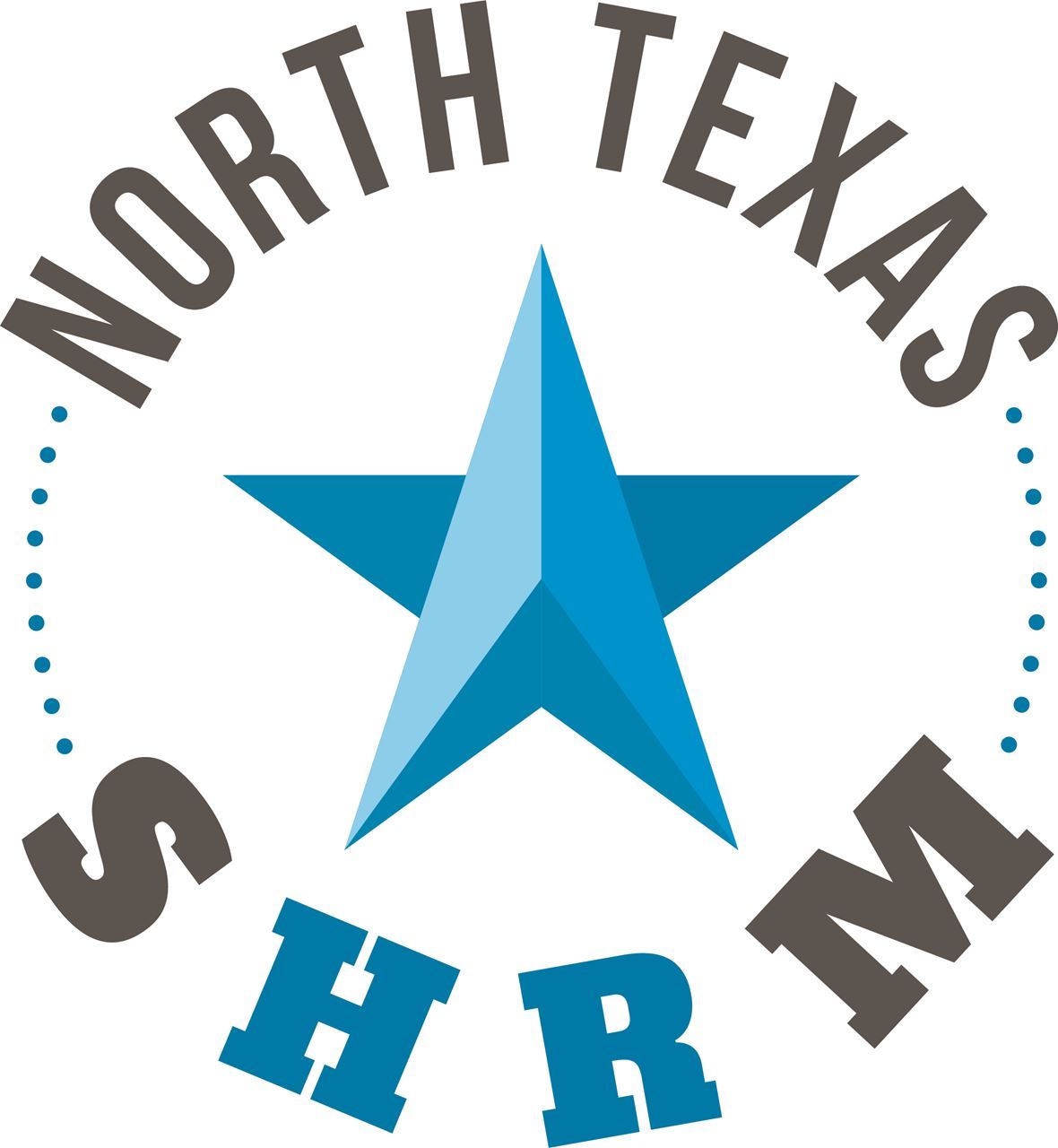
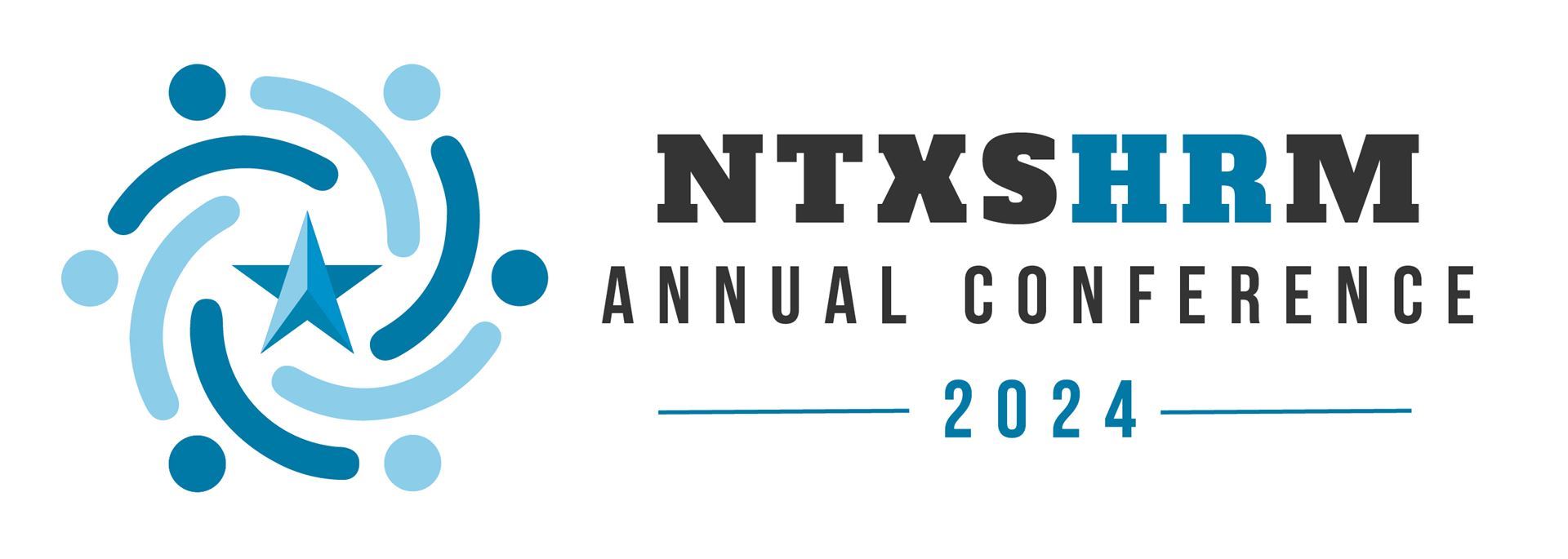
.png)













